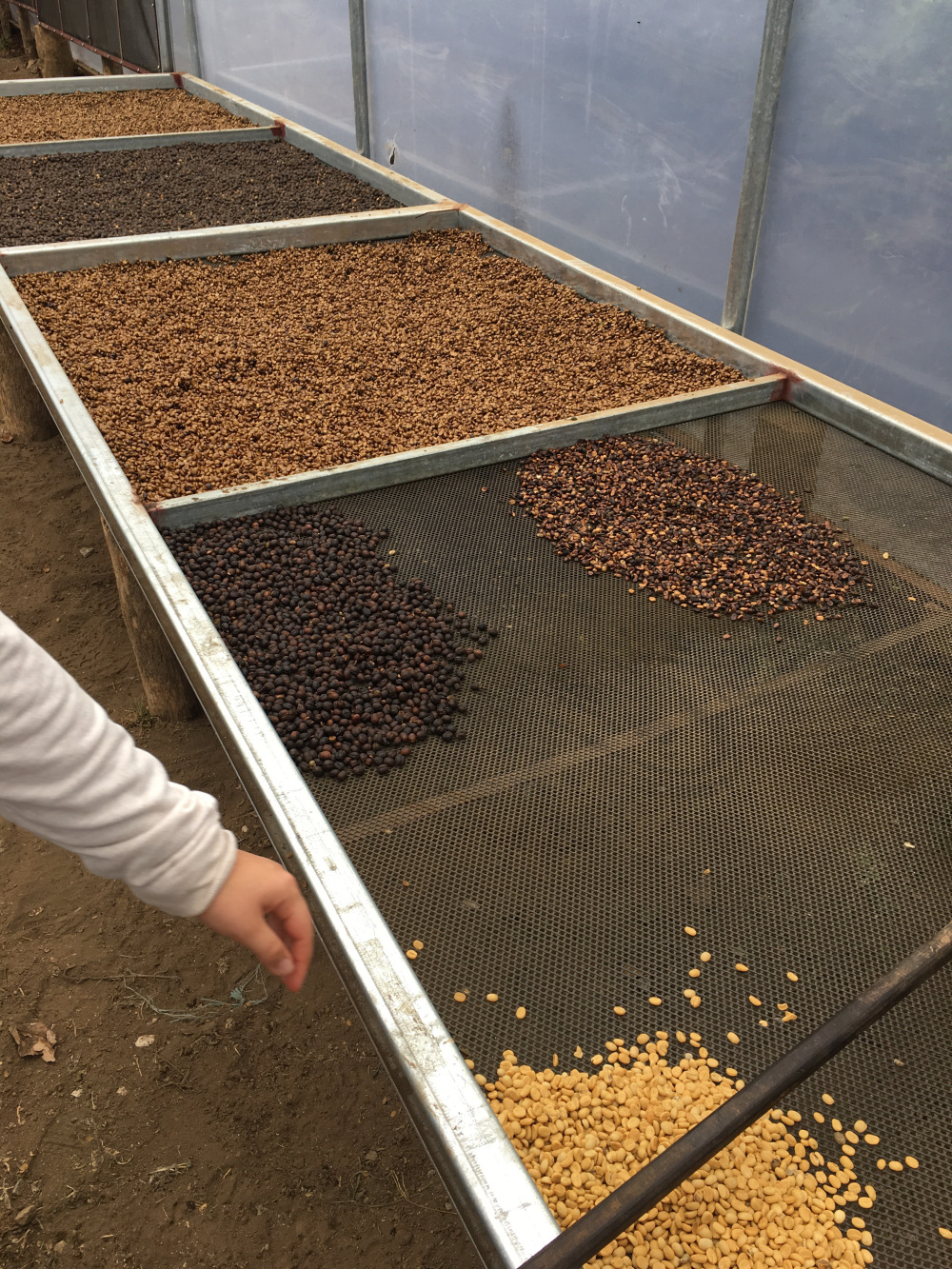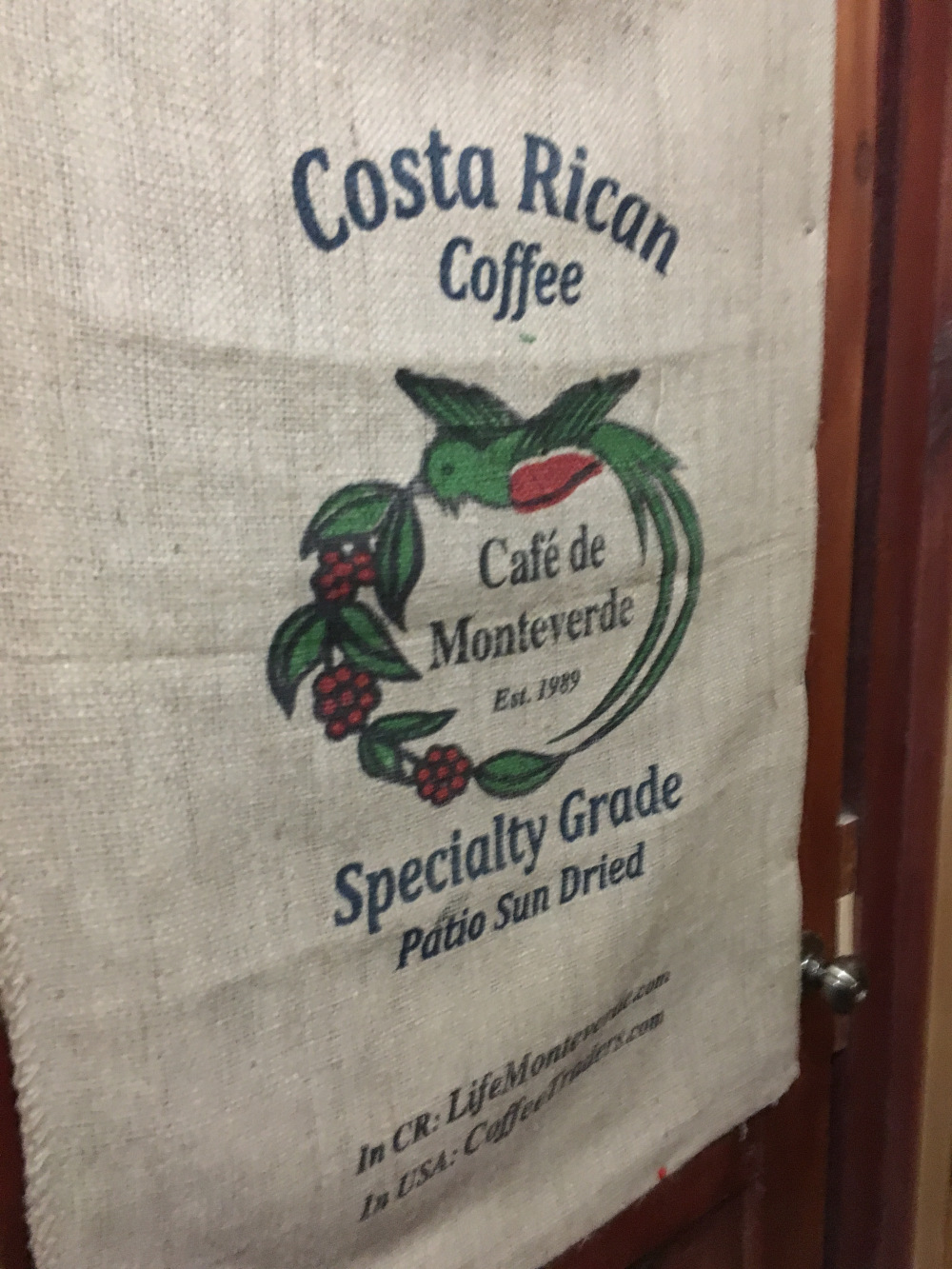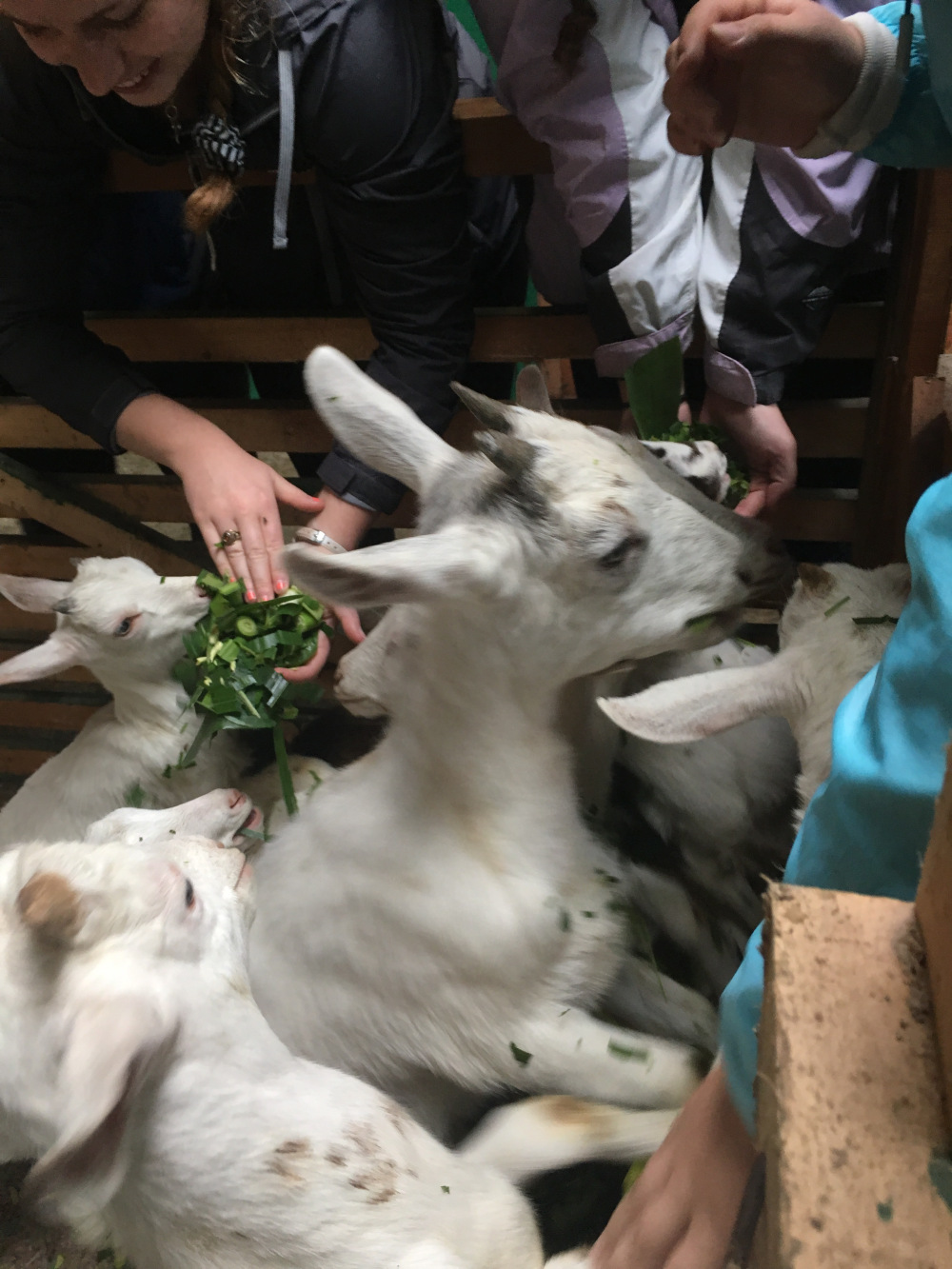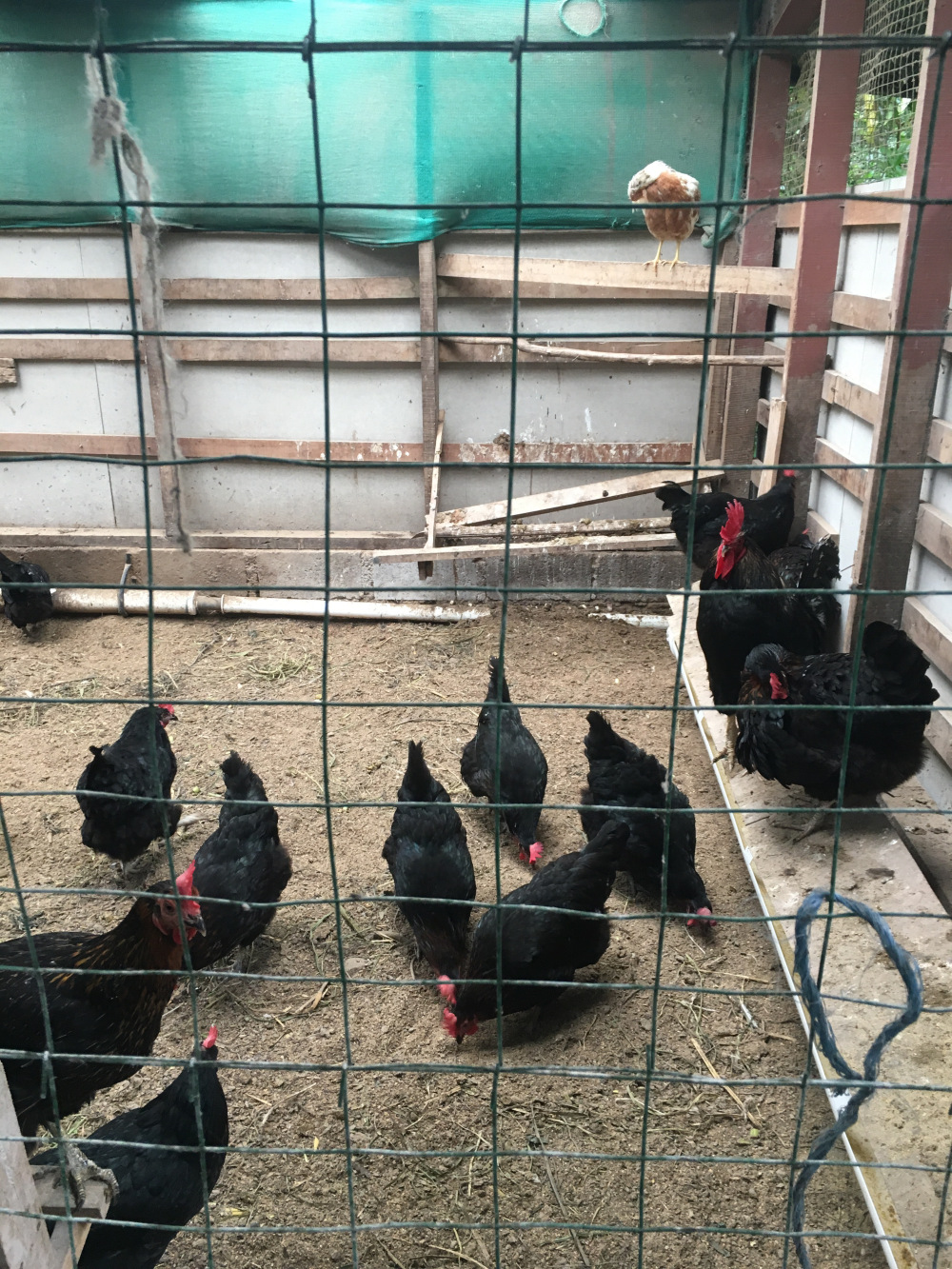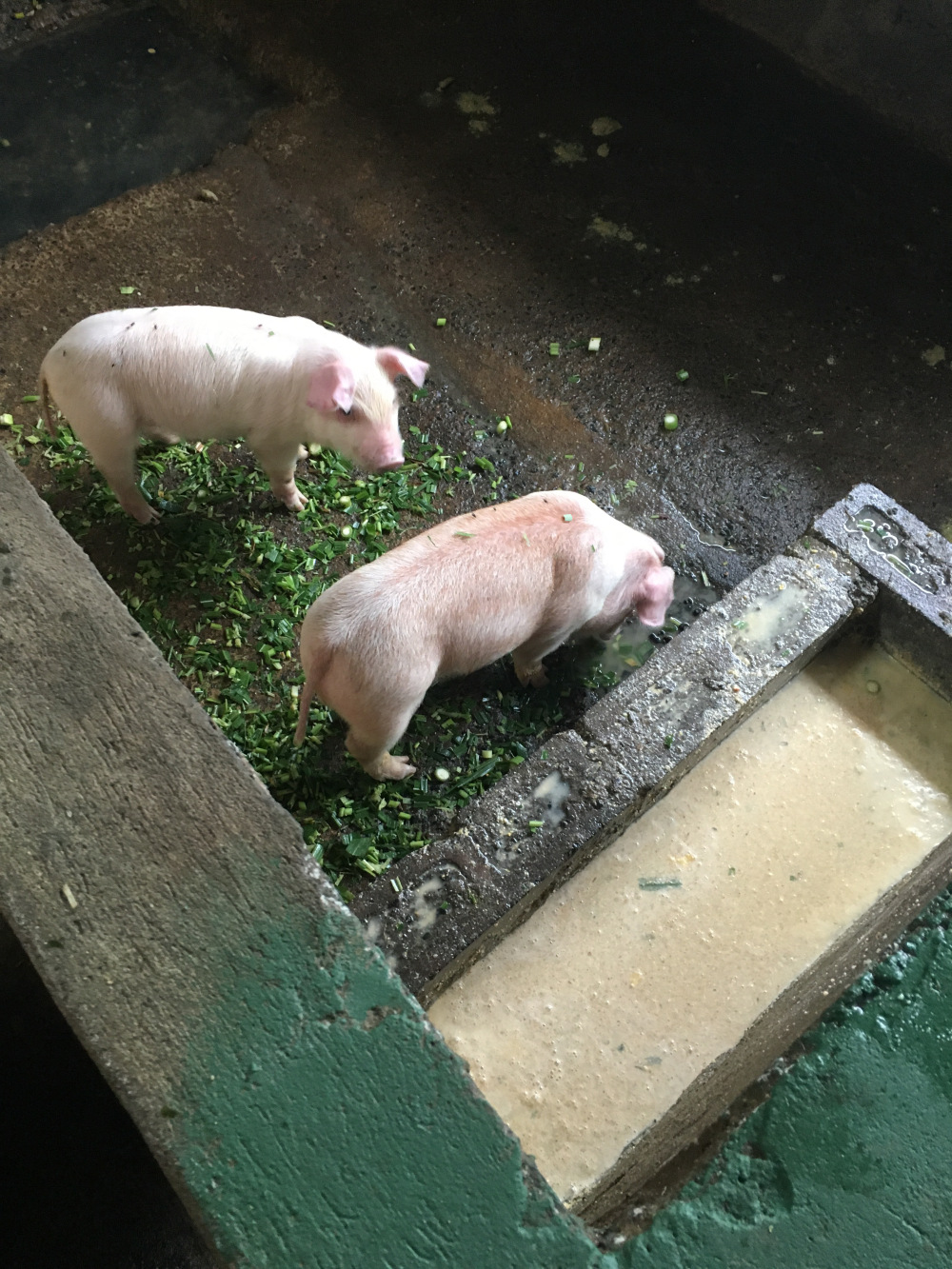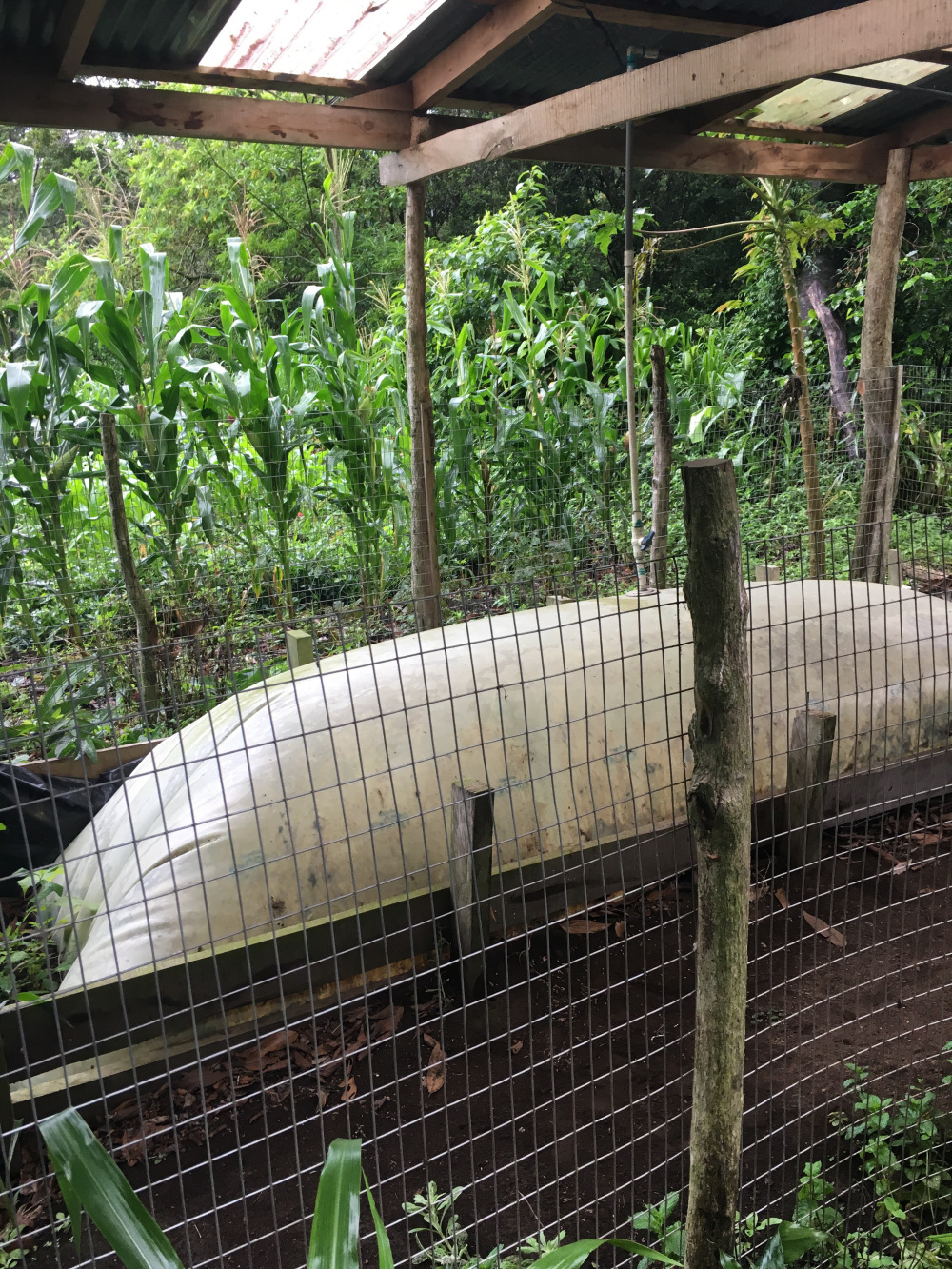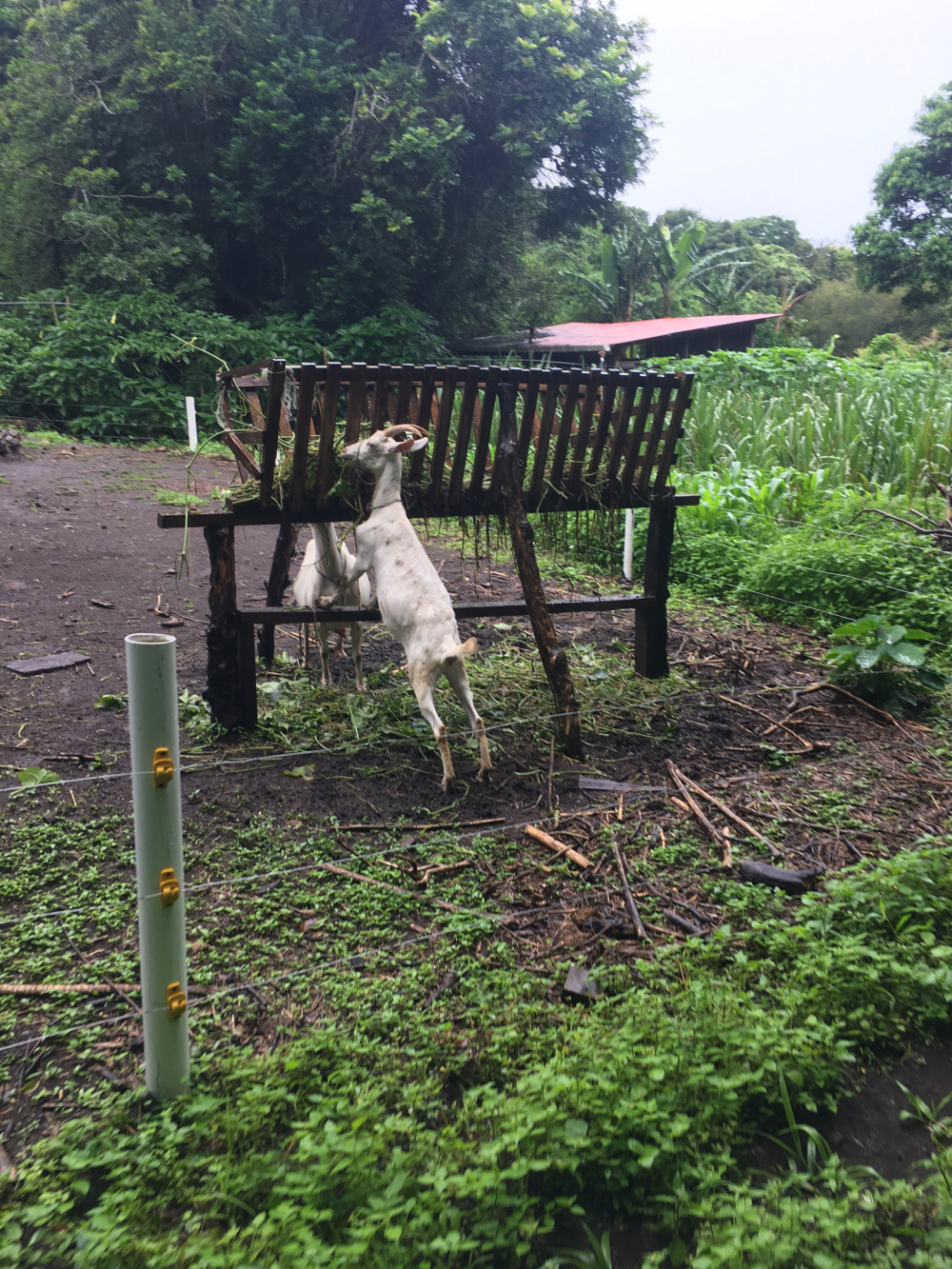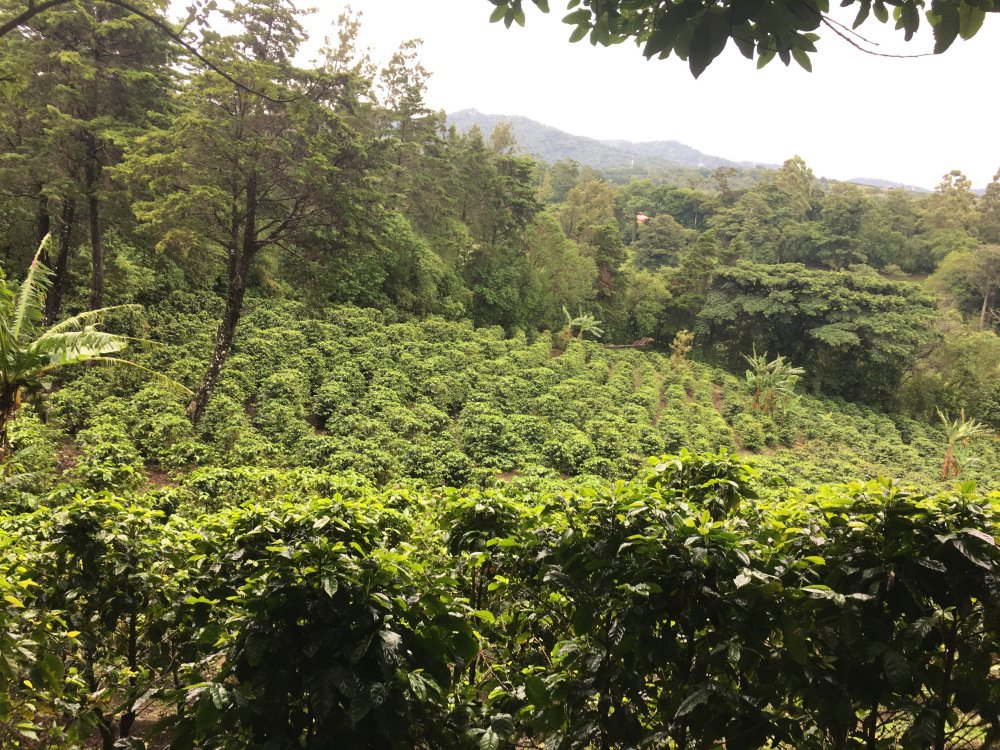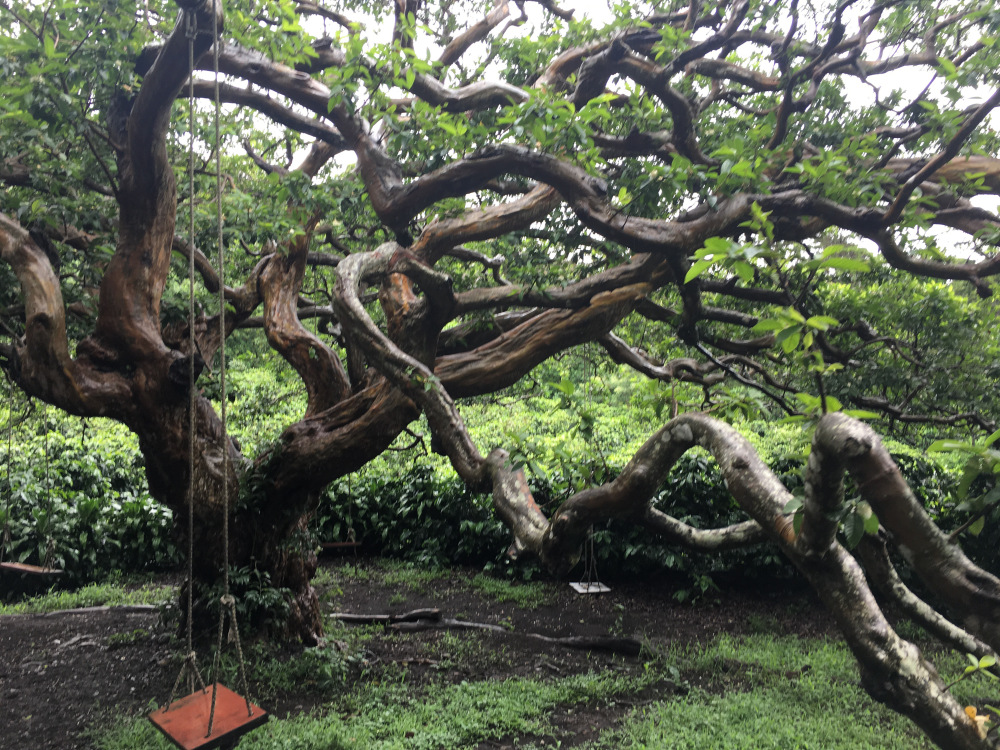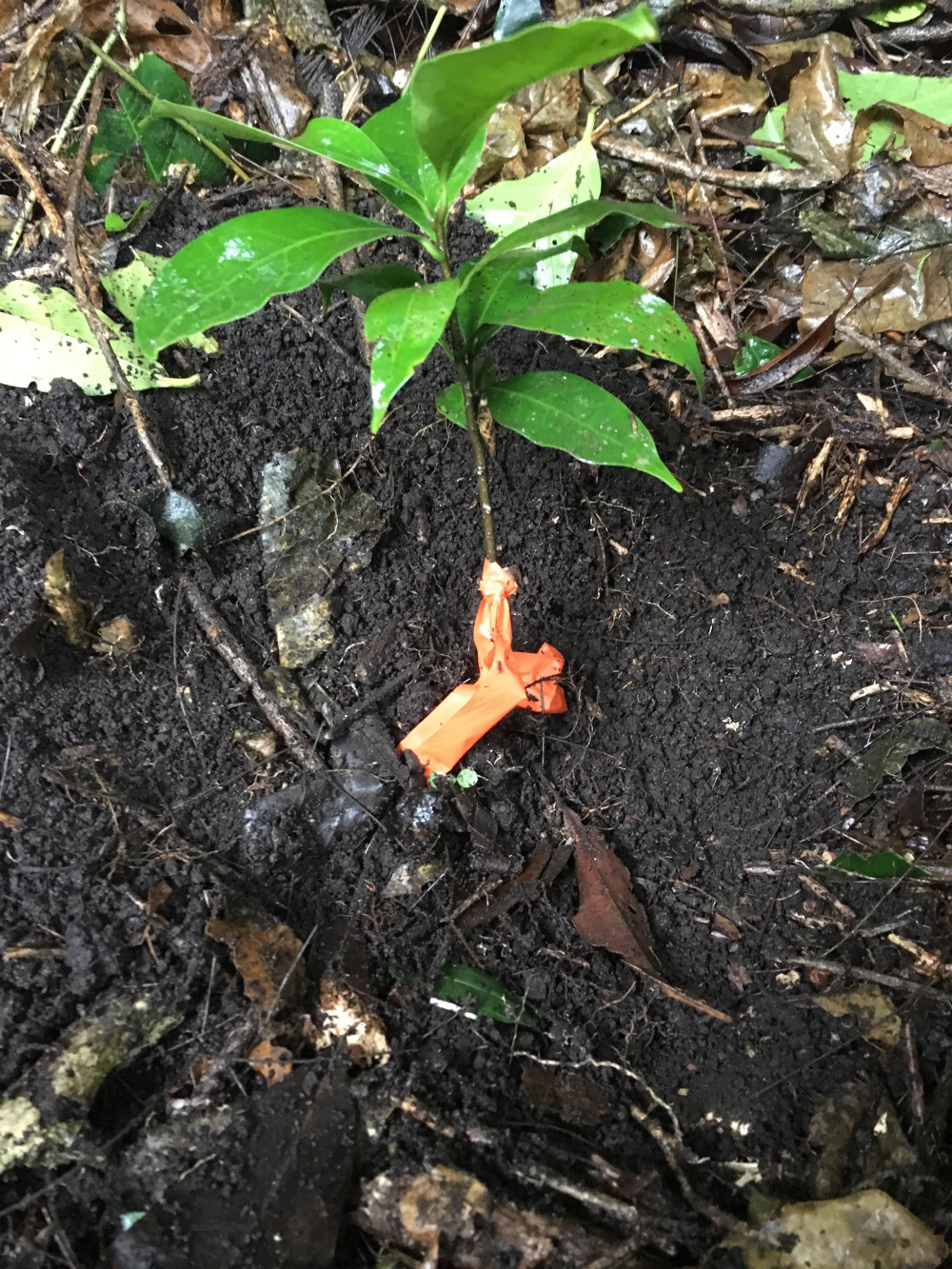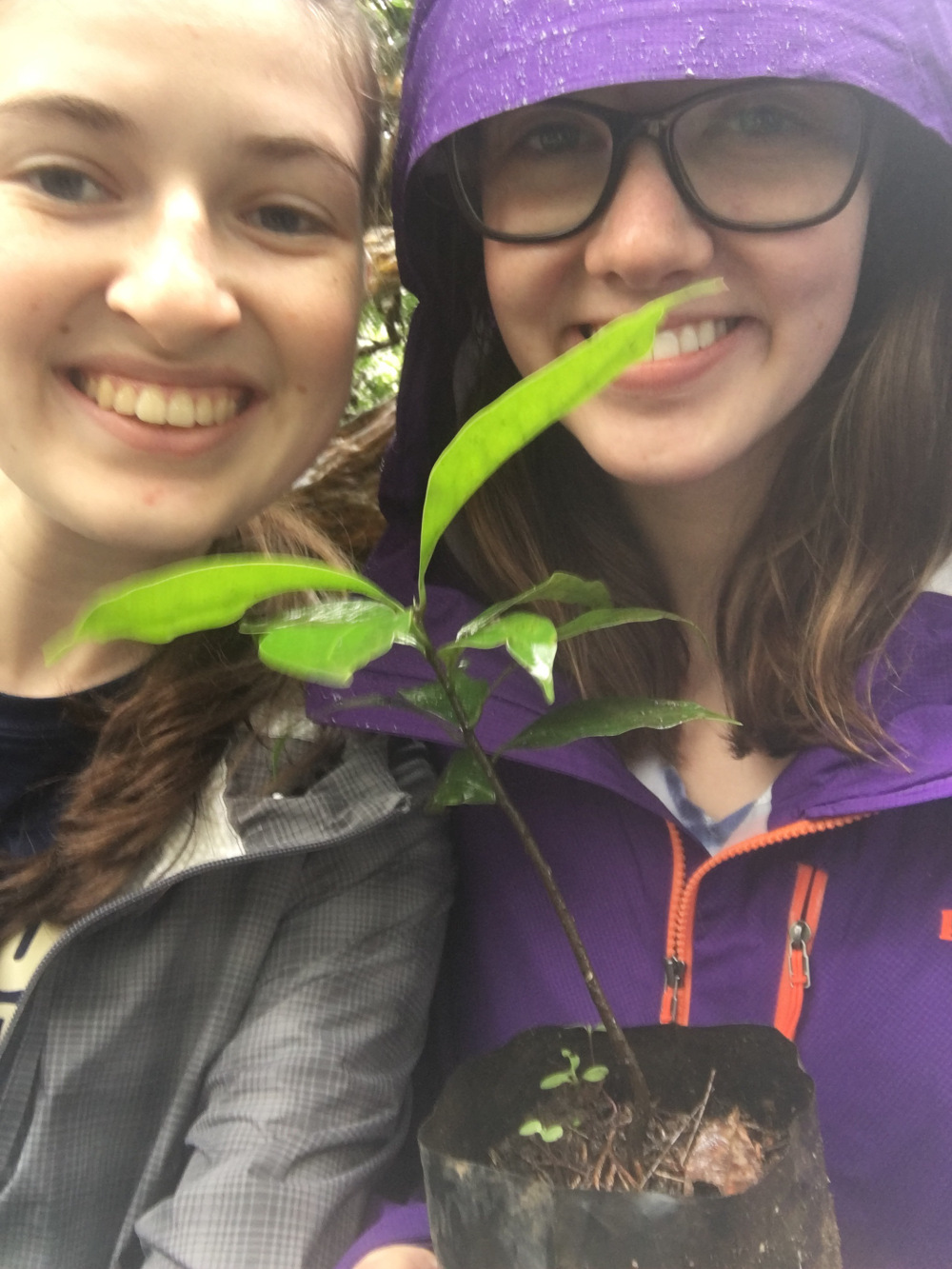Today we got to visit Life Monteverde, which is a family run farm and coffee plantation. The forty two acres is about half forest and half coffee. They also have a roastery for the coffee, a barn, and a vegetable garden. In the barn they have chicken, goats, and pigs. The garden has a wide variety of vegetables and herbs mixed together in a structured way. Most people are aware that working in agriculture is a lot of work, but seeing it is really important for everyone to experience. A Tico farmer will work morning to night and his farm is his life. One will give their plants, animals, and employees lots of love, and there is a lot to consider when running a farm. Sustainability it a big focus in Costa Rica, especially to the locals running small businesses because they know it is not just about the money. With sustainability there are three aspects: environmental, social, and economical. Obviously economical sustainability is important so Ticos can continue to run their farm and support their family. Social sustainability is important because Ticos with smaller farms really care about their workers and have a good relationship with them, which allows for communication in both directions. Finally environmental is the major aspect which I will discuss, and that was very well considered at Life Monteverde.
There are many challenges that come with trying to run a farm and be sustainable. One problem is the dirty water which comes from town. It comes through a pipe which they put in at the nearby stream. No pump is necessary since gravity pulls it downhill. It is then filtered through layers of rocks and using specific plants in the kind of pond it flows to. It is then clean enough to use for the plants and animals. So then it again flows through the garden naturally because it is on a slight slope. Excess water is collected at the bottom to be reused for something else. Another problem related to water is that the number of dry days per year has increased dramatically due to climate change. To deal with this they had to put in a sprinkler system for the garden a few years ago.
Worrying about protecting crops from bugs and disease is another major issue. One thing in the garden to prevent this is the herbs which can act as a distraction or as a natural insect repellent. Another thing that helps is the forest around the plants which is a major distraction that provides the bugs with more food options. They also plant trees in lines to separate sections of the coffee plants so that if something does go wrong in one section, it is easier to contain and fix rather than just spreading everywhere. They also try to think of natural ways to repel or kill the harmful insects. One example was a mixture of biodegradable soap and hot pepper which was put on the plant and was not liked by the bugs. Broca is an insect that can hurt coffee beans. They get inside the cherry from a tiny hole and then eat it from the inside. This means once it goes through processing, they realize that it is empty and no good. To get rid of them they set up water traps to drown them. They could also consider using chemical products or a special type of fungus which would seal the bean and kill what is on the inside, but these are not the most sustainable options and could affect the coffee.
Another issue Tico farmers face with the garden has to do with keeping fertile soil. To control this they use intercropping and rotation. Certain plants grow particularly well together like beans and corn because the beans are important for nitrogen fixation. The goal is to keep the good nutrients and microorganisms in the soil. Banana trees in the garden help because the leaves fall and act as a natural compost. The trees also hold a lot of water. Even the chickens help by walking around and scratching up the ground. The garden at Life Monteverde is not completely organic but they use as much natural fertilizer as they can by composting leftovers and waste. Having the garden is important to supply food for themselves and the animals.
An additional issue the Tico farmers try to deal with is conserving energy and resources. We saw that the machine which cuts up the food is run by simply having someone ride a bike and therefore turn the wheel to grind it. I even got to do it myself! We also learned that the machine which removes the shell from the coffee cherry is run by bike. Another process they use is a biodigester which has bacteria break down the manure from the pigs to release ammonia which is carried through pipes to the kitchen to use as power for the stove and appliances like that. This provides about four hours of energy per day for the Life Monteverde farm. To conserve water during coffee production, they reuse the water in the wet mill.
A problem that was confronting Tico farmers was major deforestation. Today many are doing their best to reforest the land in the best way. We got to help plant native trees to replace the nonnative pine trees which cause issues since their needles are very acidic and cover the ground. This makes it hard for other plants to grow. But when they would cut these pine trees, they put the wood to good use like how they built the classroom which we were in today. They are also now trying to connect the forests between farms instead of having isolated patches because that is what is needed for the native animals to live in and enable them to migrate. The Ticos realize they need the forests to preserve biodiversity and the possible medicine of the trees. Additionally the trees block the wind to protect the crops, they prevent erosion, and help keep water quantity and quality. Trees also help coffee grow because they provide good shade for the plants.
A social issue that faces Tico farmers has to do with tourism. Many Ticos left farming to instead use their land to build hotels, exciting attractions, or restaurants/stores. However it is still important that enough people are farming because the world needs food, and too many tourist attractions in the town of Monteverde causes too much competition, which leads to failure for some. The farmers at Life Monteverde do their best to educate their neighbors about the importance of farming and also being sustainable. They cannot reforest Costa Rica and purify water on their own. So they warn about use of pesticides, encourage planting trees, and share some of their innovative ways to save natural resources. They like to think that after using a natural resource like water, they give it back to the world so that it is better than it was before. Filtering water and using natural fertilizers protects the people in communities further down the mountain which will end up with the water. They also are trying to plant trees in the fields which were abandoned by farmers who decided to leave their dairy farms/cattle ranches. After so many years of having cows roam on the plot of land, it is currently beaten down and not usable so work needs to be done to reclaim it. Everything they do has the purpose to help the environment which they also realize helps themselves and others.
Despite all of these challenges, the Tico farmers are happy because they have a sense of purpose. They can see that their hard work is worth it, which is satisfying. They feel a sense of responsibility to protect the land which they are so close with, and so they do their best to conserve it. They also know that producing food is very important and that not everyone will do it. I think they are also happy to feel pride in their accomplishments. Their love and relationships with their land, plants, animals, and employees bring them joy.
If I were a Tico farmer, I would not do it very differently. I agree with their sustainable practices and I think I should follow their example because they have a lot more experience than I do. The only things I might change at Life Monteverde is to make the vegetable garden completely organic and stop all use of pesticides. I might also stop raising pigs on the farm because they said that was something they were considering. I believe that if I was raising the animals and getting so close with them, that I am not sure if I could kill them. So it would not be worth it to raise them in the first place. I believe they are handling their coffee production process pretty well, but I might work to improve their marketing and sales. Mostly though I was very impressed and happy to learn; so there is not much that I can currently think to change.
